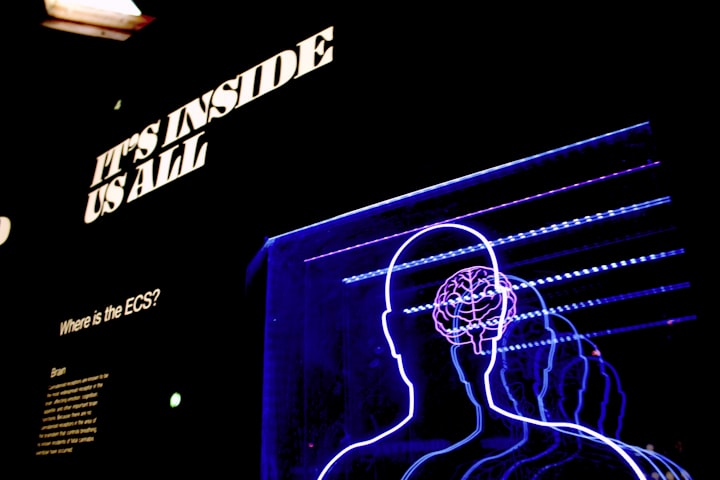The Psychology of Decision Making
Understanding the Factors that Influence Our Choices

Every day, we are confronted with countless decisions, ranging from trivial to life-altering. But have you ever wondered what factors influence the choices we make? The field of psychology offers valuable insights into the intricate processes of decision making. This article explores the cognitive biases, heuristics, and social influences that shape our decision-making processes, shedding light on why we sometimes make irrational choices. Additionally, we will discuss strategies for making more informed and rational decisions.
1. Cognitive Biases
Cognitive biases are inherent flaws in our thinking processes that can lead to systematic errors in decision making. They stem from our brain's need to simplify complex information and make quick judgments. Examples of common cognitive biases include confirmation bias, where we seek out information that confirms our preexisting beliefs, and availability bias, where we rely on readily available information rather than considering a broader range of evidence. By understanding these biases, we can become more aware of our tendencies and strive to make decisions based on objective analysis rather than subjective biases.

2. Heuristics
Heuristics are mental shortcuts or rules of thumb that our brains employ to simplify decision making. While heuristics can be helpful in navigating complex situations efficiently, they can also lead to cognitive biases and suboptimal decisions. For instance, the availability heuristic leads us to base decisions on easily recalled examples, rather than considering more accurate statistical probabilities. By recognizing the heuristics we rely on, we can critically assess their applicability in different situations and make more deliberate choices.

3. Social Influences
Our decision making is not solely influenced by our individual thought processes. Social influences play a significant role in shaping our choices. Conformity, for example, occurs when we adjust our behavior or beliefs to match those of a group. This can lead to groupthink and prevent us from critically evaluating alternative perspectives. Additionally, social pressure, authority figures, and cultural norms can impact our decisions. Being aware of these social influences allows us to consider their impact and make decisions that align with our values and goals.

4. Emotional Factors
Emotions also play a critical role in decision making. The emotional state we are in at the time of making a decision can influence our choices. For example, when we are in a positive mood, we may be more likely to take risks or make impulsive decisions. On the other hand, negative emotions can lead to risk aversion or biased thinking. Understanding our emotional state and how it may impact our decision making helps us to evaluate choices more objectively and avoid making hasty or emotionally driven decisions.

5. Strategies for Informed Decision Making
To make more informed and rational decisions, it is essential to employ strategies that mitigate cognitive biases and enhance critical thinking. Some effective strategies include gathering diverse perspectives and information, challenging assumptions, seeking out disconfirming evidence, and practicing reflective thinking. Additionally, using decision-making frameworks such as cost-benefit analysis, SWOT analysis, or decision trees can provide structure and clarity in complex decision-making situations.

6. The Role of Intuition in Decision Making
While rational decision making involves careful analysis and weighing of pros and cons, intuition also plays a significant role. Intuition refers to our ability to make quick decisions based on gut feelings and implicit knowledge. It can be particularly useful when faced with time constraints or complex situations where conscious deliberation may not be practical. However, it is important to differentiate between genuine intuition and biases masquerading as intuition. Developing self-awareness and discernment helps us recognize when to rely on intuition and when to engage in more deliberate reasoning.

7. Decision Making in the Face of Uncertainty
Many decisions we encounter involve an element of uncertainty, where outcomes are unpredictable or probabilities are unknown. In such situations, we often rely on heuristics or mental shortcuts to simplify the decision-making process. However, understanding the concept of uncertainty and probabilistic thinking can aid in making more rational choices. Techniques such as scenario planning, sensitivity analysis, and Monte Carlo simulations can help us assess the potential outcomes and associated risks more effectively.

8. Overcoming Decision Paralysis
Sometimes, the abundance of choices can lead to decision paralysis, where individuals struggle to make a decision due to fear of making the wrong choice or being overwhelmed by options. By breaking down decisions into smaller, manageable steps, setting clear criteria, and prioritizing what truly matters, we can overcome decision paralysis. Additionally, embracing a growth mindset that acknowledges the possibility of learning from mistakes and adapting our choices can alleviate the fear of making the "perfect" decision.

9. Decision Making in Ethical Dilemmas
Ethical decision making poses its own challenges, as it involves considering the moral implications and potential consequences of our choices. Ethical frameworks such as utilitarianism, deontology, and virtue ethics provide guidelines for navigating ethical dilemmas. Engaging in ethical reflection, seeking diverse perspectives, and weighing the long-term impact of our decisions on individuals and society help us make ethical choices aligned with our values.

Conclusion
Understanding the psychological factors that influence decision making equips us with the knowledge and tools to make more informed, rational, and ethical choices. By recognizing cognitive biases, employing critical thinking strategies, considering social influences, and acknowledging the role of intuition and uncertainty, we can enhance our decision-making processes. Ultimately, the goal is to strike a balance between analytical reasoning and intuitive insights, embracing a multidimensional approach that considers objective analysis, personal values, and the broader impact of our choices. With practice and self-awareness, we can cultivate the skills necessary to navigate the complexities of decision making and lead a more intentional and fulfilling life.
About the Creator
Kenneth Argüello
Welcome to my page! In this space Ill be sharing my passions and curiosities
Reader insights
Nice work
Very well written. Keep up the good work!
Top insight
Easy to read and follow
Well-structured & engaging content






Comments (1)
NICE...